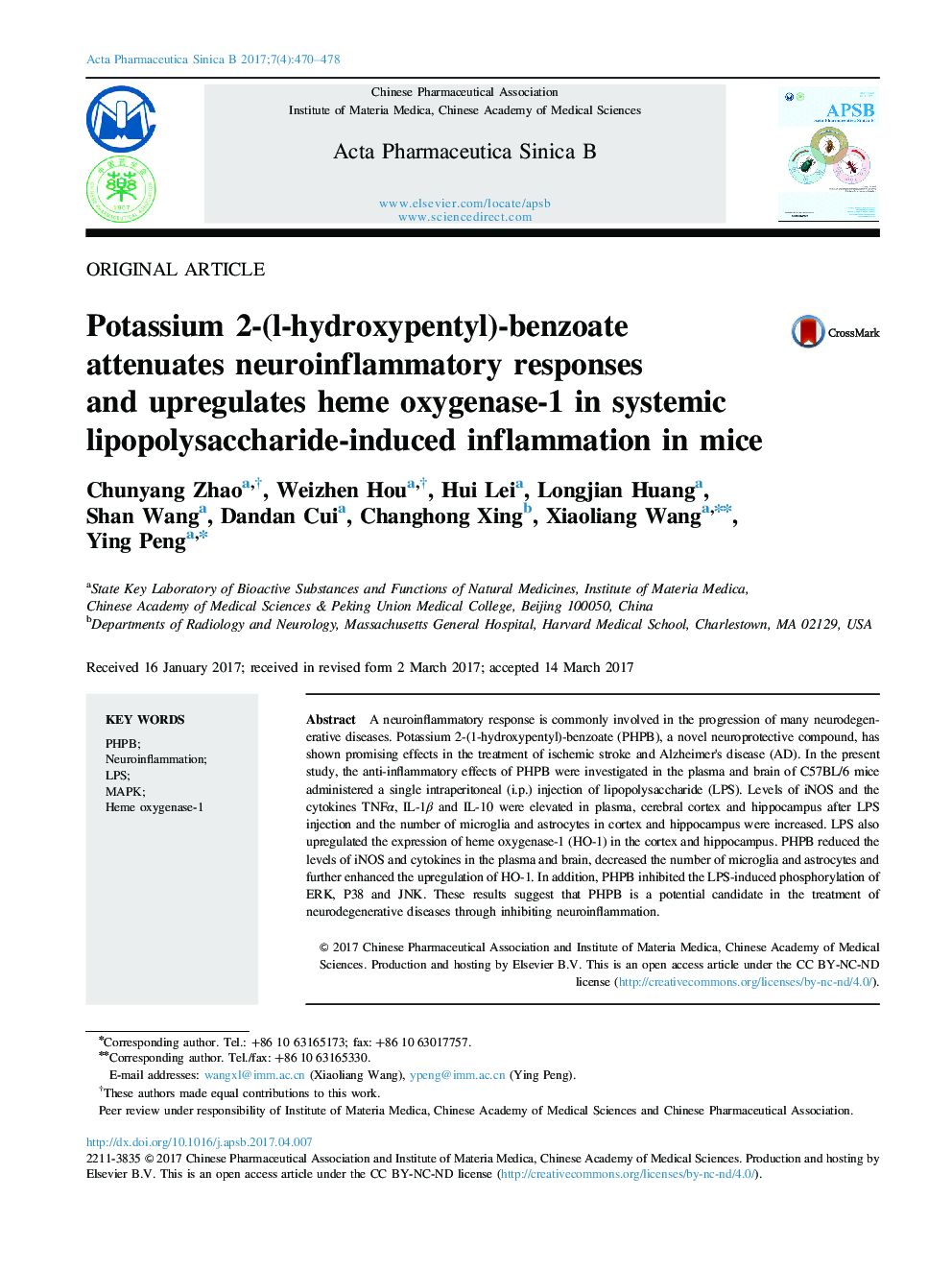| Article ID | Journal | Published Year | Pages | File Type |
|---|---|---|---|---|
| 5546569 | Acta Pharmaceutica Sinica B | 2017 | 9 Pages |
A neuroinflammatory response is commonly involved in the progression of many neurodegenerative diseases. Potassium 2-(1-hydroxypentyl)-benzoate (PHPB), a novel neuroprotective compound, has shown promising effects in the treatment of ischemic stroke and Alzheimer׳s disease (AD). In the present study, the anti-inflammatory effects of PHPB were investigated in the plasma and brain of C57BL/6 mice administered a single intraperitoneal (i.p.) injection of lipopolysaccharide (LPS). Levels of iNOS and the cytokines TNFα, IL-1β and IL-10 were elevated in plasma, cerebral cortex and hippocampus after LPS injection and the number of microglia and astrocytes in cortex and hippocampus were increased. LPS also upregulated the expression of heme oxygenase-1 (HO-1) in the cortex and hippocampus. PHPB reduced the levels of iNOS and cytokines in the plasma and brain, decreased the number of microglia and astrocytes and further enhanced the upregulation of HO-1. In addition, PHPB inhibited the LPS-induced phosphorylation of ERK, P38 and JNK. These results suggest that PHPB is a potential candidate in the treatment of neurodegenerative diseases through inhibiting neuroinflammation.
Graphical abstractIn this study, the neuroprotective effects of PHPB have been demonstrated in an in vivo brain injury model in mice. PHPB protected against LPS-induced neuroinflammation via inhibition of microglial activation resulting from attenuation of inflammatory cytokines, reduction of oxidative stress and downregulation of MAPK pathways.Download high-res image (158KB)Download full-size image
